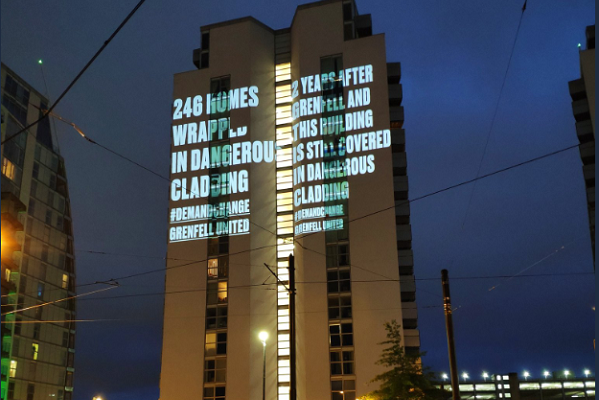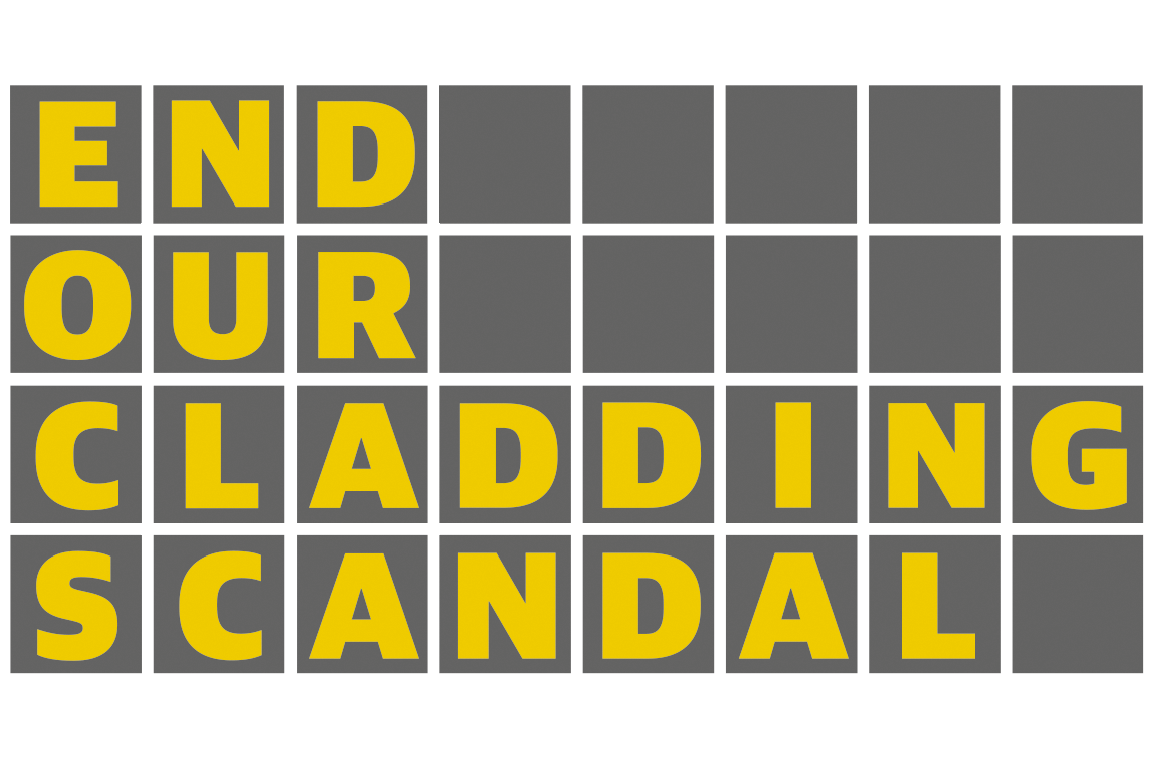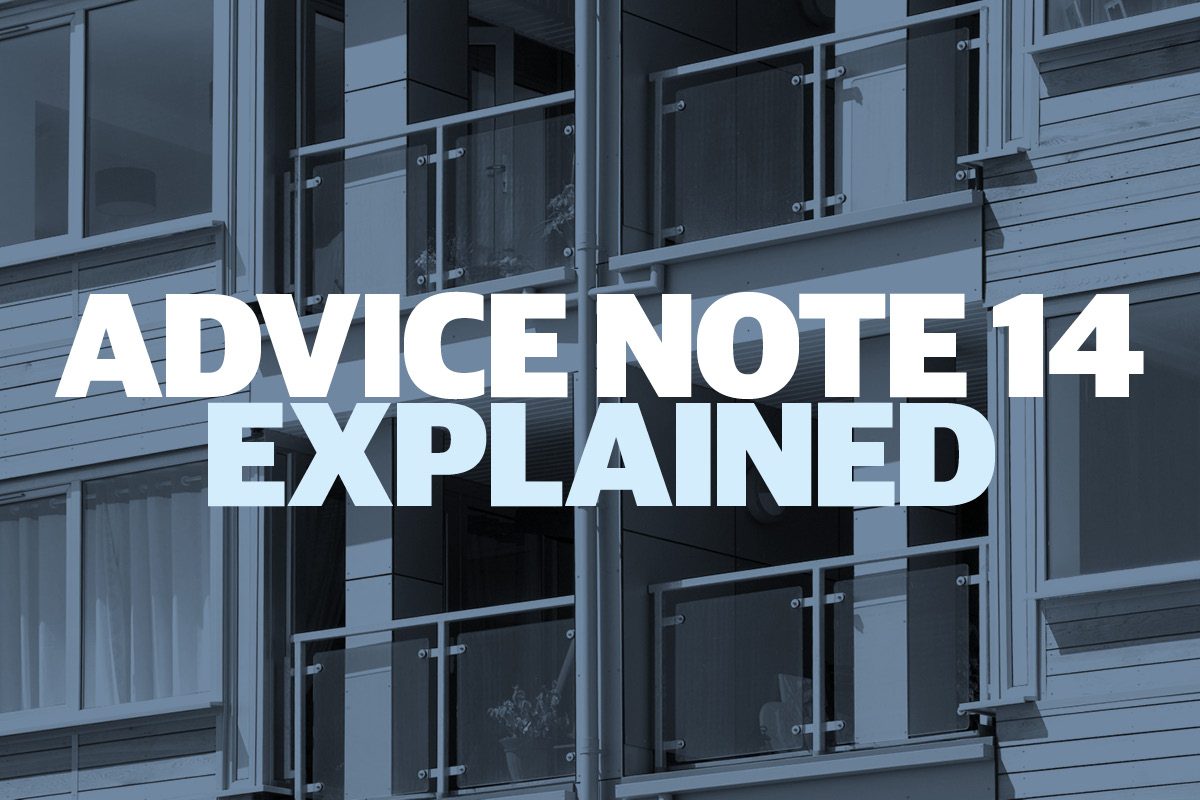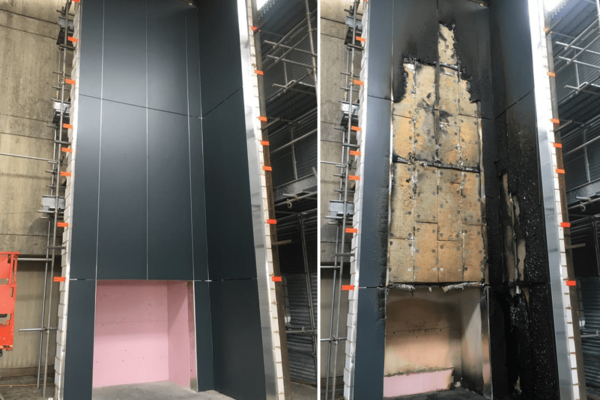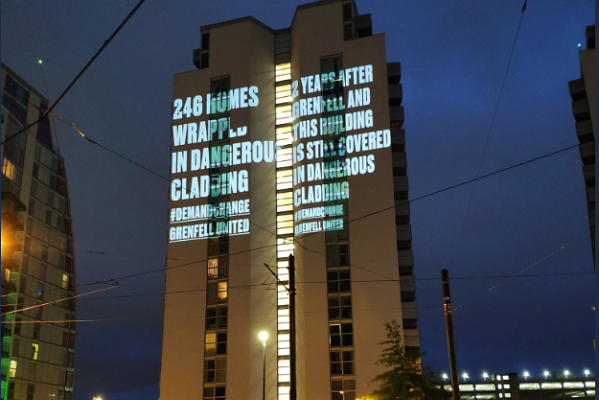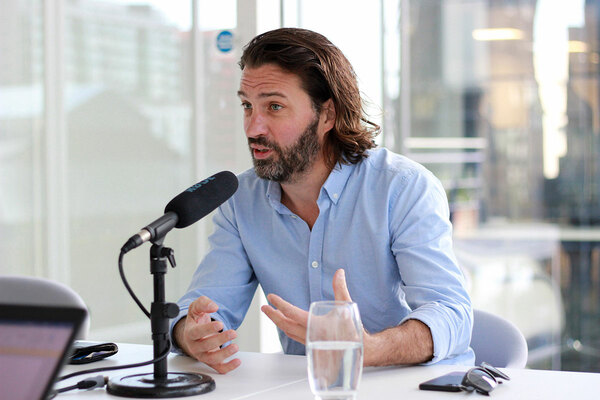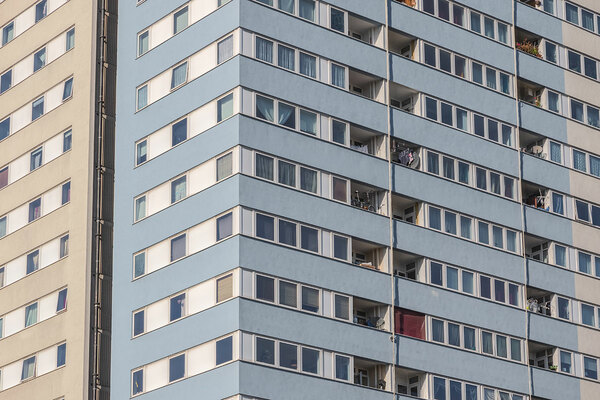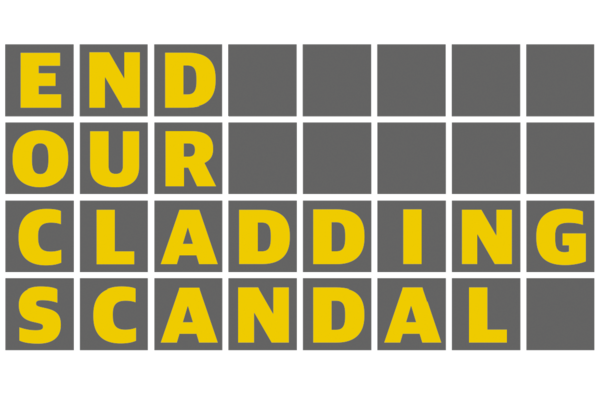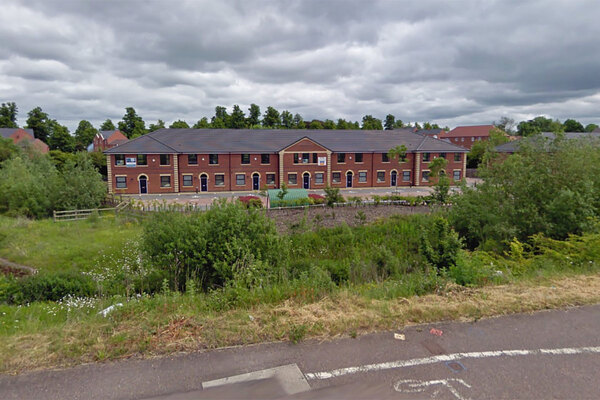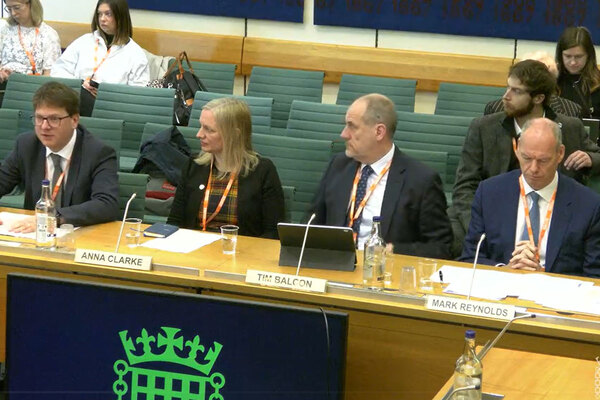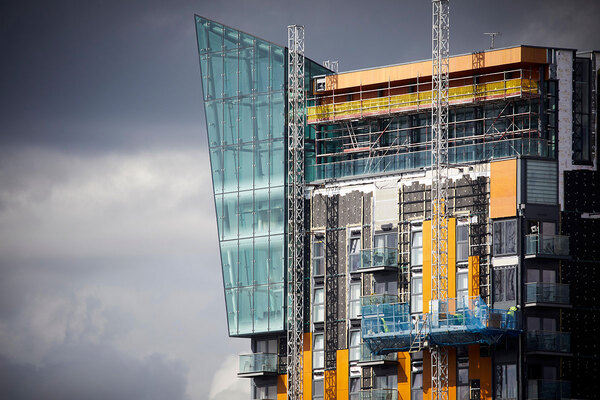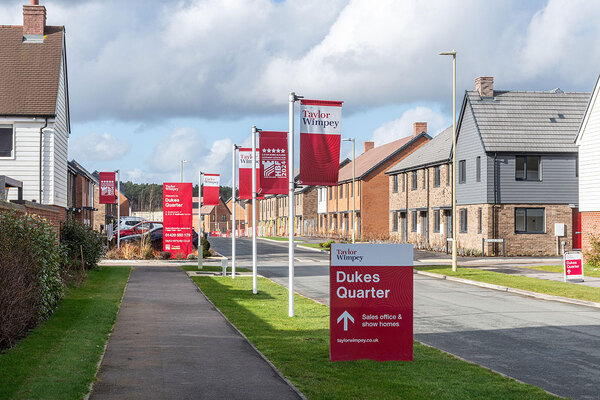Private cladding fund ‘starting to feel like a PR stunt’, say leaseholders
Leaseholders in private blocks with deadly Grenfell-style cladding have warned that the government’s £200m remediation fund is “starting to feel like a PR stunt”, due to the high barriers on applying.
The fund, which opens for applications today, was announced in May to provide funds to speed up the slow pace of remediation work on high-rise towers with aluminium composite material (ACM) cladding.
But the requirements for an application include the need for every leaseholder in the building to fill out a five-page ‘state aid’ form. This can mean tracking down hundreds of leaseholders, some of whom are based overseas.
Alex Di Giuseppe, a leaseholder from City Gate in Manchester and a founding member of the Manchester Cladiators campaign group, said: “In our block there are 329 leaseholders and every single one has to fill out the form.
“Ninety-nine of ours do not live in the building, and 28 of the properties are rented out. I have no idea how those leaseholders are going to be tracked down to fill out the form.
“It [the fund] is starting to feel like a bit of a PR stunt to try and close the book on an issue that is not resolved.”
A spokesperson for the UK Cladding Action Group, which represents leaseholders in blocks with dangerous cladding, said: “There seem to be an awful lot of barriers in place, which make it difficult to apply for this fund. The requirement for state aid forms in particular has proved difficult.”
One resident, who preferred not to be named, said: “I have been compiling a list of leaseholders for our block and it has taken me two-and-a-half years to get details for two-thirds of the block. We don’t even know where many of the others are – some of them are based overseas and don’t even pay their service charges.”
Applications to the fund must be received by December to be successful – leaving little time to gather this information.
The terms require the “responsible entity” to make the application but does not make it clear who this is, stating that it could be “the building freeholder or head leaseholder or a management company”.
This is also understood to be preventing an application in some buildings where there is a dispute about who should be considered ‘responsible’ – especially where there is the potential for additional work down the line.
The rules of the fund mean cash is released on a monthly basis to recompense the work already carried out, which is also deterring applications.
This is particularly true in instances where a small managing agent may not have access to the capital or expertise required to carry out the multimillion-pound construction project – even with the promise of compensation.
The government has set a deadline of June 2020 for all private sector blocks with ACM-cladding to be remediated.
Of 145 private sector blocks with the material, just 13 have completed remediation work, while a further 21 have started.
The fund does not cover other forms of dangerous cladding, buildings below 18m or other fire safety issues within homes.
Inside Housing’s End Our Cladding Scandal campaign calls for the establishment of a public fund to cover these wider issues as well.
An MHCLG spokesperson said: "To ensure remediation proceeds as swiftly as possible, we published full fund application guidance in July.
“This set out the scope and eligibility criteria for the fund against which applications will be assessed, allowing applicants to prepare for formally submitting applications.”
Update, at 5pm on 13.9.2019
Following the publication of this article, a spokesperson for MHCLG contacted Inside Housing to say applicants would not need to wait until all the forms were completed before making an application and urged those struggling to collect forms to "discuss this with the delivery partners".
The spokesperson added that it is in touch with a "named individual" for each building, and stressed that payment in arrears is "normal industry practice" - with support available for applicants who have "little financial capital".
MHCLG was contacted for comment ahead of publication.
End Our Cladding Scandal: campaign aims
- Government provides a fund to cover the cost of cladding removal and remedial works on private blocks
- A firm timescale is set out of no more than two years for the work to be carried out
- Residents are reimbursed for the interim fire safety costs incurred, and funding is to be provided for necessary internal fire safety measures identified by a competent fire risk assessor
End Our Cladding Scandal: full coverage
- Government-funded advice agency tells leaseholders they are 'likely' to be liable for cladding costs: LEASE, the government's official advisory service for leaseholders, has been advising residents they are likely to be liable to pay bills for cladding removal
- Residents evacuated after fire at block with Grenfell-style cladding: Residents of Vallea Court in Manchester are forced to flee after a fire breaks out in a lift shaft
- Leaseholders in London block pay nearly £3.5m for cladding removal: Despite promises from ministers to protect leaseholders, residents of the M&M Buildings near Paddington have been told to pay out
- Minister's will have blood on their hands if another death occurs, says MP: A round-up of the parliamentary debate on providing funding to remove dangerous cladding
- Sector leaders call for an end to the cladding scandal: backers of the campaign explain why they are calling on the government to end the scandal
- #EndOurCladdingScandal – campaign launch sees cladding stories go viral: a round-up of the Twitter reaction to the launch of our campaign
- Revealed: the mental health trauma of residents in blocks with dangerous cladding: read about the mental health impacts of dangerous cladding on high rises
- Victims of the cladding scandal: read the stories of some of those impacted by the crisis
- Why we need a cladding fund for private buildings: Manchester Council chief executive Joanne Roney explains why a fund to pay for cladding removal is necessary
- Why Inside Housing is joining with leaseholders to call for an end to the cladding scandal: our deputy editor Peter Apps on why we are supporting the campaign
- End our cladding scandal: the campaign’s aims and backers
